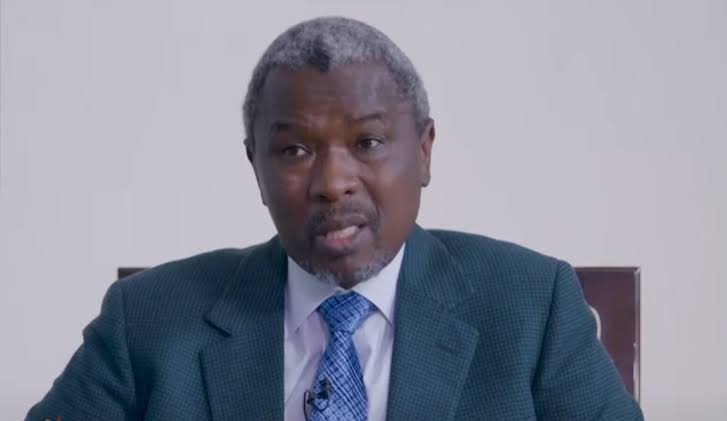Controversy Surrounds Tagwirei’s Donation of 300 Vehicles to ZANU PF Structures
In a move that has ignited widespread debate and scrutiny, Zimbabwean businessman and philanthropist Kudakwashe Tagwirei has donated 300 vehicles to ZANU PF’s provincial and district coordinating committees. The donation, reported by NewsDay Zimbabwe, is ostensibly aimed at bolstering the ruling party’s operational capacity ahead of future political activities. However, the grand gesture has raised serious questions about the intersection of wealth, political patronage, and economic power in a nation grappling with severe inequality.
The vehicles, described as a mix of single and double-cab models, were handed over at a ceremony that highlighted the deep connections between the country’s business elite and the political establishment. For the recipients within ZANU PF’s intricate structures, the donation is a significant logistical upgrade, potentially enhancing mobility and outreach capabilities. Yet, for many ordinary Zimbabweans, the spectacle of a massive fleet of new vehicles being gifted to a political party is a stark reminder of the vast disparities that define the nation’s economic landscape.
“The vehicles will go a long way in easing mobility problems faced by the party leadership across the country… This is a clear demonstration of Tagwirei’s commitment to the party and its ideals,” a party official was quoted as saying during the handover ceremony.
Kudakwashe Tagwirei, the founder and chairman of Sakunda Holdings, is a figure of immense influence and controversy. His companies have historically secured lucrative government contracts, particularly in the energy and agricultural sectors, leading to frequent accusations from critics and opposition figures of a symbiotic “state-capture” relationship. His philanthropic endeavors, while substantial, are often viewed through a political lens, interpreted less as charitable giving and more as strategic investments in maintaining access and influence.
This perception is heavily influenced by his international standing. Notably, Tagwirei is currently under targeted sanctions from the United States Treasury Department. The Office of Foreign Assets Control (OFAC) designated him pursuant to Executive Order 13469 for allegedly providing material support to the Government of Zimbabwe, a government whose actions and policies, the U.S. argues, have undermined democratic processes and institutions. As detailed by the U.S. Department of the Treasury, these sanctions are aimed at individuals who have engaged in corrupt activities or serious human rights abuse. This international context casts a long shadow over domestic actions, with critics arguing that such a high-profile donation effectively flouts the spirit of these international measures.
The timing and scale of the donation are also subjects of intense analysis. Zimbabwe’s economy continues to face significant headwinds, including hyperinflation, currency instability, and widespread poverty. The government is implementing austerity measures and seeking debt relief from international financial institutions. In this climate, a private individual possessing the resources to purchase a fleet of hundreds of new vehicles for a political party is seen by many as indicative of the skewed priorities and opaque financial flows that plague the nation. It raises uncomfortable questions about the sources of such wealth and the expected returns on such a considerable investment.
“The United States remains committed to supporting the people of Zimbabwe in their pursuit of a more prosperous, democratic, and equitable future. We will continue to target and isolate those who exploit the political system for personal gain at the expense of the Zimbabwean people,” a Treasury Department spokesperson stated following the imposition of sanctions.
Within ZANU PF, the donation is likely to solidify Tagwirei’s status as a key benefactor, granting him significant soft power and leverage. For the party’s grassroots structures, which often operate with limited resources, such support is undoubtedly valuable. It empowers local coordinators, potentially strengthening the party’s organizational grip across the country’s provinces and districts. However, this dynamic also risks creating a dependency on a single wealthy individual, potentially sidelining other voices and factions within the party and centralizing influence around those who control the purse strings.
For the opposition and civil society groups, the vehicle donation is a potent symbol of what they describe as systemic corruption and the blurring of lines between the state, the ruling party, and private business interests. They argue that such acts entrench the ruling party’s advantage, creating an unlevel playing field ahead of elections where access to resources like transport can be a decisive factor in campaign effectiveness. It feeds into a longstanding narrative that ZANU PF utilizes state and quasi-state resources to maintain its political dominance.
The broader implications for Zimbabwean democracy are profound. When vast private wealth is funneled directly into a dominant political party’s machinery, it challenges principles of fairness and equitable competition. It can undermine public trust in political institutions and fuel cynicism among the electorate. Furthermore, it highlights the challenges of regulating political finance in a context where enforcement is weak and the boundaries between private donation and public corruption are often ambiguous.
Ultimately, Tagwirei’s donation of 300 vehicles is more than a simple act of charity or political support. It is a multifaceted event that reflects the complex and often troubling realities of power, money, and politics in Zimbabwe. It underscores the immense economic power wielded by a select few and its direct application within the political arena. While it may provide short-term logistical benefits for ZANU PF, it reinforces a pattern of patronage that critics argue is detrimental to the country’s democratic health and economic recovery. The incident serves as a stark reminder of the ongoing struggles with governance, accountability, and equality that continue to shape Zimbabwe’s future.


